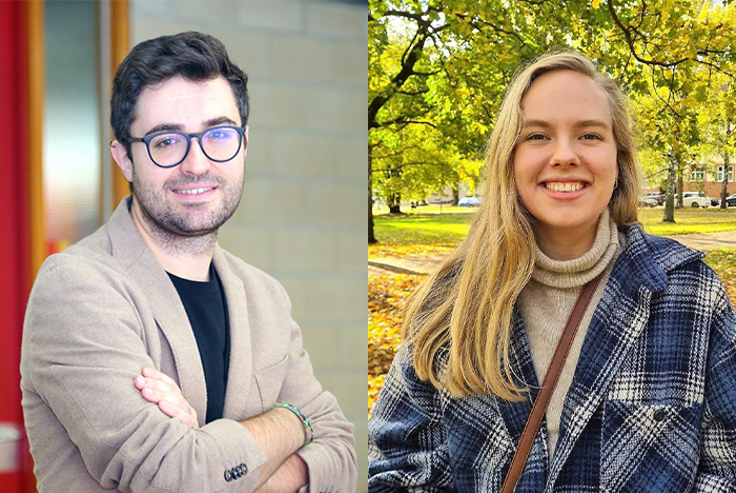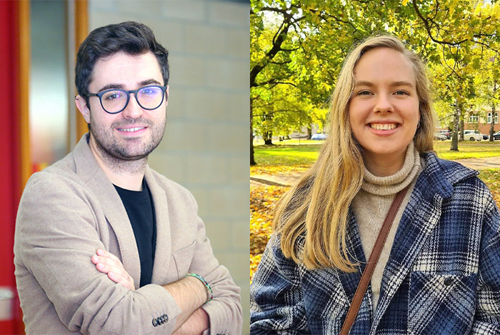We welcome Karoline Hansen Skåra and Álvaro Hernáez!
News
|Published
Karoline and Álvaro will both work on the Infertility project, looking to understand the causal nature of the relationship between infertility and cardiovascular disease.
This news article is older than 30 days and the information may be outdated
Go to the home pageKaroline Hansen Skåra started as a PhD student on January 4, and after spending 10 days in a quarantine hotel at Gardermoen, we could finally welcome Álvaro Hernáez as our new postdoc on January 14. Karoline and Álvaro will work on the ERC project Infertility which is led and supervised by project leader Maria Magnus.
Karoline Hansen Skåra is a biologist and finished her master’s degree at the Norwegian University of Science and Technology in May 2020. She has recently been working as a research technician at Oslo University Hospital, where she worked in a lab analyzing the Covid-19 virus on the NOR Solidarity project.
In the infertility project, she will be working with cardiovascular disease and infertility using data from the HUNT Study. More specifically, she will investigate the relationship between classic cardiovascular disease risk factors and risk of infertility, in addition to assessing the association between infertility and future cardiovascular disease risk.
Álvaro Hernáez arrived from Barcelona in Spain, where he since 2018 has been working as a postdoc researcher at August Pi i Sunyer Biomedical Research Institute (IDIBAPS). His field of expertise is molecular epidemiology in cardiovascular disease. Álvaro has worked in two top biomedical research institutes in Barcelona on the study of emergent biomarkers and molecular mechanisms of cardiovascular disease and their improvement by healthy lifestyle modifications (diet, physical activity), and published articles as first or senior author in several top journals of the field such as Circulation in 2017 and 2020, Metabolism, Molecular Nutrition and Food Research and the European Journal of Preventive Cardiology. In addition, he has lectured in several courses on molecular nutrition and supervised 4 PhD students.
In the Infertility project Álvaro will be working on the study of the causal link between cardiovascular risk and subfertility, which will help to understand if improving cardiovascular risk factors (excess weight, dyslipidemia, glucose metabolism alterations, hypertension, etc.) could promote the reproductive capacity of the population.
- I am very excited to welcome Karoline and Álvaro to the centre and I look forward to working with them on the Infertility project. Based on their expressed enthusiasm for the project, I think we have many interesting discussions ahead of us which will help us conduct excellent research together, says Maria Magnus.
About the Infertility project:
Maria Magnus received an ERC Grant for this project in 2020. The Infertility project will aim at filling several existing knowledge gaps to understand the nature of the relationship between infertility and cardiovascular disease (CVD).
This includes understanding: whether both infertile men and women have an increased risk of CVD; how well-known risk factors for CVD (blood-pressure, body-mass index, cholesterol and smoking) relate to infertility; whether there exists common genetic determinants of infertility and CVD; and whether the connection between infertility and CVD in women can be explained by the use of assisted reproductive technologies or pregnancy complications.

